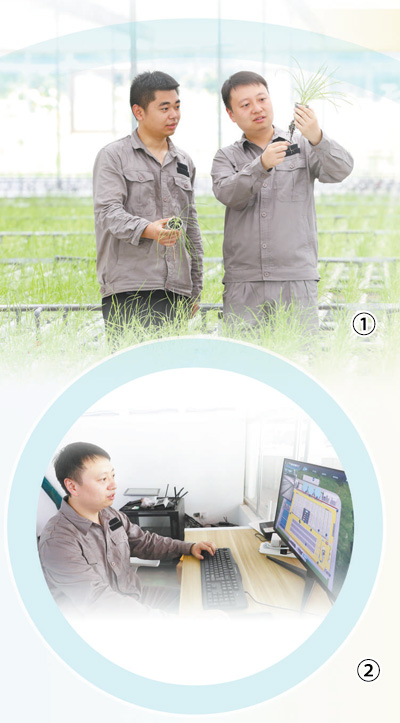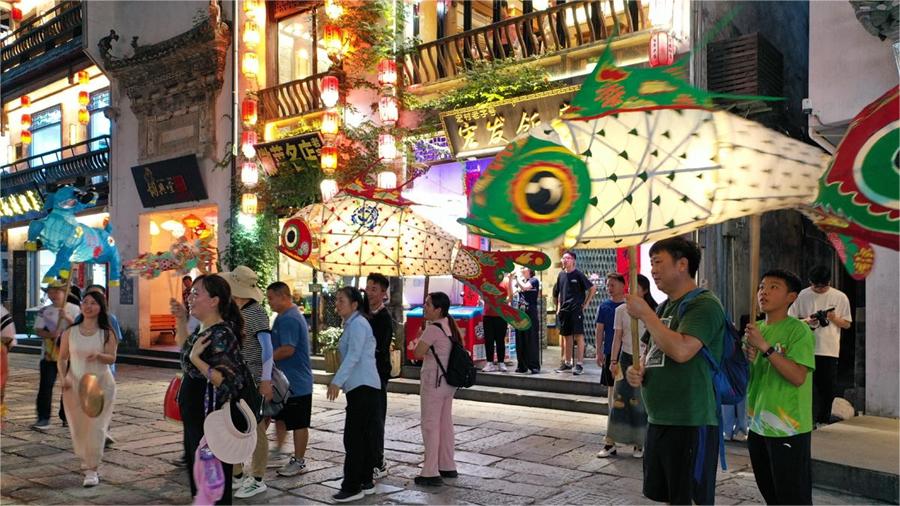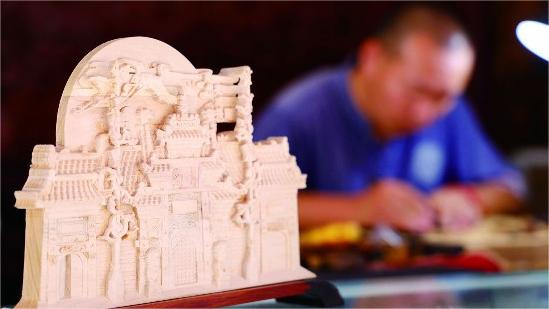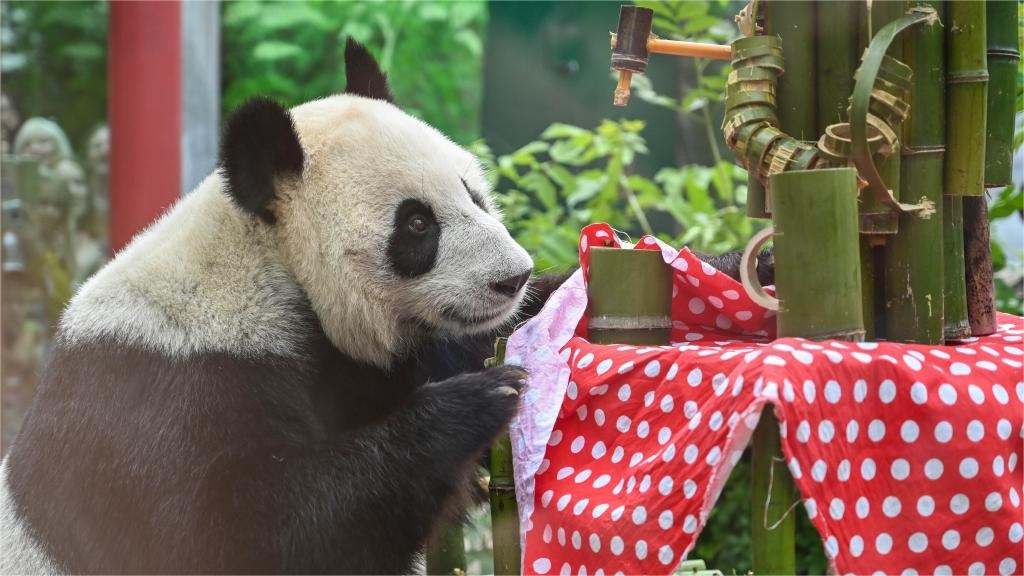Digital aquaponics factory ensures intelligent fish farming, vegetable growing in SW China’s Chongqing
At a digital aquaponics factory that combines fish farming and vegetable growing in Liangping district, southwest China's Chongqing Municipality, there's no one to be seen.
An automated feeding system precisely feeds the perches, while Li Mai remotely monitors and controls the system from an office in downtown Chongqing, with production data automatically transmitted to his computer.
"I'm an engineer and a new type of fisherman," said Li, an agricultural digital technician at the Chongqing Academy of Agricultural Sciences.

①: Li Mai (R) checks on the growth of Chinese chives at a digital aquaponics factory that combines fish farming and vegetable growing in Liangping district, southwest China's Chongqing Municipality. (Photo/Liu Hui)
②: Li Mai checks the aquaponics system that combines fish farming and vegetable growing on his computer in southwest China’s Chongqing Municipality. (Photo/Liu Hui)
Unlike traditional feeding methods based on experience with fish, the system enables AI-driven intelligent feeding. Li's role now focuses on "feeding" data to the AI farming system to make it smarter and more experienced.
The factory has an aquaponics system where fish are raised downstairs and vegetables are grown upstairs, with pipes connecting the two floors. The fish pools use smart algorithms to control feeders based on the fish’s needs, while sensors automatically monitor water conditions, including temperature and dissolved oxygen levels. In the vegetable greenhouses, wastewater from fish farming is turned into liquid fertilizer for vegetables after treatment.
Precise monitoring is key to the success of the fish farming model, and that means the sensors it relies on to monitor water quality must be accurate.
The journey hasn't been without difficulties. In 2022, the farm suffered significant fish losses due to sensor failures. Poor predictions by the sensors resulted in water quality adjustments not being made in time.
The Chongqing Academy of Agricultural Sciences brought in aquaculture experts to solve the problems, ensuring more accurate water quality management.
Under the guidance of experts and professors, a much stronger water quality system was developed that used monitoring sensors and predictive AI models to create a smart early warning system for any issues.
Next, Li and his colleagues focused on feeding the fish. Insufficient feeding of the fish slows down their growth, while over feeding wastes resources and can also cause issues for the fish.
Together, they eventually developed an AI model for precise feeding and an intelligent feeder, significantly reducing farming costs. They have also developed a system to monitor the growth of fish.
Li said that the digital aquaponics factory has nearly halved the growth cycle of fish, reduced feed use by 20 percent, and increased the per unit output of fish tenfold compared to that in ponds. In addition, the vegetable yield there is also over ten times that of farmland.
Photos
Related Stories
- A glimpse of Chongqing International Logistics Hub Park
- Urban renewal injects new vigor into old street in Chongqing
- Tourists visit Fairy Mountain scenic area in Chongqing, SW China
- Chongqing becomes a rising logistics hub in western China
- Local authorities in SW China leverage ethnic features to boost summer tourism
Copyright © 2024 People's Daily Online. All Rights Reserved.









